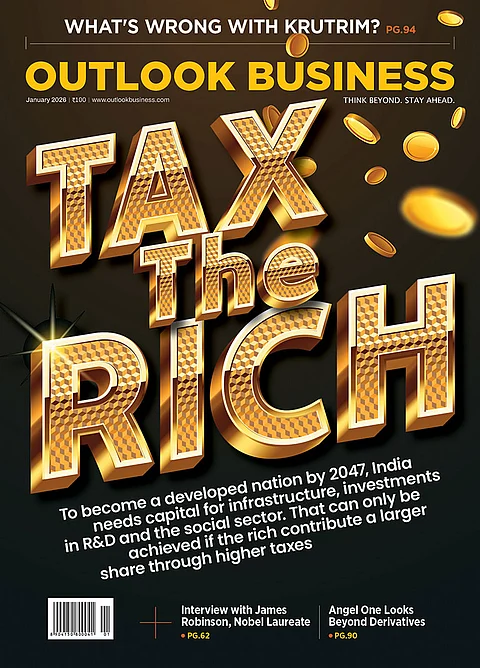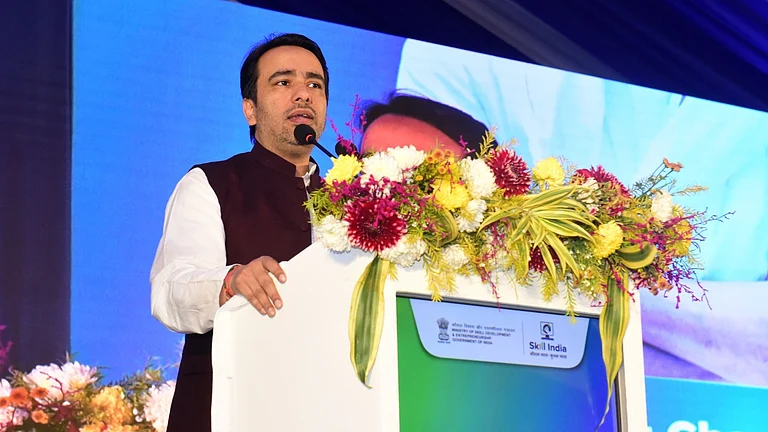
Long-term success in AI-infused, hybrid workplaces requires emotional resilience, authenticity, and empathy.
Nearly two-fifths of core worker skills will change, moving towards a blend of technical and essential human competencies.
Integrating mental wellness and resilience as a core learning outcome is essential.
Recruiters today are not chasing raw horsepower; they are searching for judgment grounded in humane communication. The modern workplace is increasingly defined by AI‑infused workflows, platformized value chains, hybrid teams, and public expectations around ethics and sustainability. Technical competence might be the ticket to entry. But sustenance requires emotional resilience and authenticity. In the absence of these qualities, one fails to think critically. One fails to read a room with empathy. One fails to engage in communication without realizing value.
A structural transformation is underway in global employment. Employers are explicitly signaling a shift in the skills premium. The World Economic Forum’s Future of Jobs Report 2025 identifies analytical thinking as the most in‑demand core skill worldwide. Resilience, flexibility/agility, and leadership with social influence follow close behind. The report also notes that AI and big data are among the fastest‑rising skills. Taken together, these shifts imply that roughly two‑fifths of workers’ core skills will change over the next five years. Complementing this, McKinsey Global Institute’s ‘The future of work after COVID‑19’ and ‘The future of work: Understanding what’s temporary and what’s transformative’ show how hybrid work, automation, and the green transition are restructuring roles and tasks through 2030.

However, all that glitters is not gold. Things that appear shiny, new, or efficient are not inherently valuable. When human dimensions are ignored, much‑hyped AI transformation, automation, and predictive analytics only serve the echo chambers of positive spin. The human costs are visible: insecurity, emotional detachment, and erosion of empathy. We often do not see leaders who could align their AI strategies with empathy, communication, and people‑centered approaches.
Amid this great tension and workplace transitions, young graduates require more than tech skills to find meaning in fast‑changing workplaces, build resilience, and deal with people with empathy and authenticity. If anything, COVID has done to the young workforce is create a psychological rupture that has intensified insecurity, built a different worldview about jobs, including expectations from the job and strong organizational culture, and awareness about emotional well‑being. The 2021 Deloitte Global Millennial and Gen Z Survey reveals increased discourse around burnout, anxiety, and emotional well‑being at work. Something is brewing.
In 2023, in the case of Byju, an edtech startup, we witnessed an employee publicly venting frustration over withheld incentives and a lack of support. The viral video triggered large‑scale social media discourse around toxic work culture and abusive practices. In 2022, an investigation by Thomson Reuters Foundation revealed incidences of physical and verbal abuse, institutionalization of hustle culture, and masking of reality by leadership in Byju.
While the world awaits such gutsy and rebellious outbursts to become viral, it is both the suppressed and repressed emotions that continue to negatively affect employees. Research published in the Academy of Management Journal (2007) suggest that the culture of openness, fairness, and supportive climates increases voice. Fear, futility, and toxic workplace norms increase silence. In our ongoing research, we found several instances of both suppressed and repressed emotions among young working professionals, who, at some point in time in their past, have silently endured the hidden burden of stress, anxiety, and emotional exhaustion. Lack of bare minimum emotional support at the workplace diminished their sense of belonging.
The way we see it, navigating a complex world order and operating in a high‑stakes setting requires one to master interpersonal competencies. One simply cannot assume having the resources to tackle workplace toxicity. We have read about CEOs tearing up presentations, throwing tantrums, and firing people for not responding during non‑working hours. When the organizational culture itself falters due to erosion in values, compassion, and mutual respect, it can never be too late for the reckoning. That reckoning demands a renewed sense of self, cultivating adaptability, and psychological strength.
While individuals can develop survival skills, the process is slow and linear. Habit replacement takes time. A single lesson does not override default habits. Moreover, the complexity of multiple overlapping stressors, including both internal (e.g., personal health and daily life challenges) and external (e.g., financial problems and relationship issues), makes the development process slow. A 2019 peer‑reviewed study published in Nature's Scientific Reports finds psychological resilience is built over time, not overnight.
However, educational institutes can very well prepare young graduates for the evolving future of work. First, prioritizing students’ psychological safety and well‑being is paramount. Having programs that provide resources for prevention, emotional conditioning, and effective feedback cycles helps.
Second, failure to integrate mental wellness and resilience as a learning outcome is problematic. While some assessment and accreditation bodies focus on mental wellness as a core skill, some do not. National Education Policy 2020 (NEP) explicitly emphasizes the inclusion of mental wellness and well‑being as part of the learning outcomes for students by enabling a system that facilitates holistic development, focuses on life skills, and enhances ethical and emotional capacities. The challenge is sustaining this progressive outlook and widespread implementation.
Third, a recent survey by Resume.org reveals that hiring managers in the US are reluctant to hire recent graduates who show a lack of motivation, professionalism, poor time management, and a sense of entitlement. Other chronic problems include excessive phone use, an attitude of indifference, difficulty handling feedback, and an inability to adapt to company culture. We see it as a diversity appreciation issue. Lack of awareness in the workplace diversity could result in managerial shock, impacting critical soft skills such as emotional intelligence, adaptability, teamwork, problem‑solving, and leadership. Thus, a need for inculcating mutual respect and inclusive behavior is essential. It works two ways. While managerial competency needs to accommodate demographic shifts in work values and attitude, employee capacity building must include accepting failure and feedback without defensiveness and reframing values from entitlement to contribution. Thus, a renewed approach to holistic development, life skills, and ethical and emotional capacities as envisioned in the NEP 2020 needs willful implementation, not just lip service.
Emotional readiness starts now.
Both authors teach managerial communication, critical thinking, and interpersonal skills courses at Indian Institute of Management Kashipur.
The views expressed in this article are solely those of the authors.





























